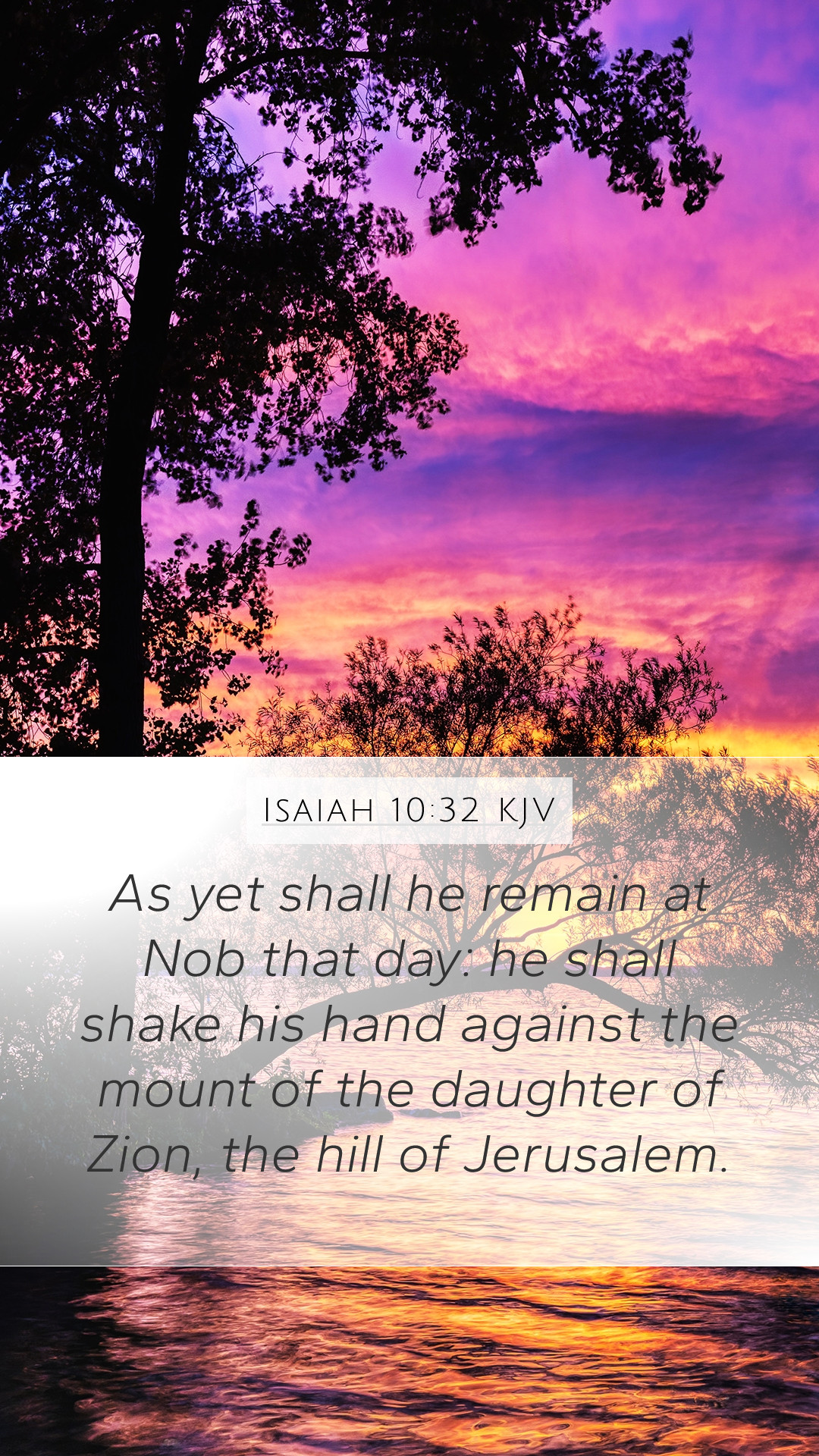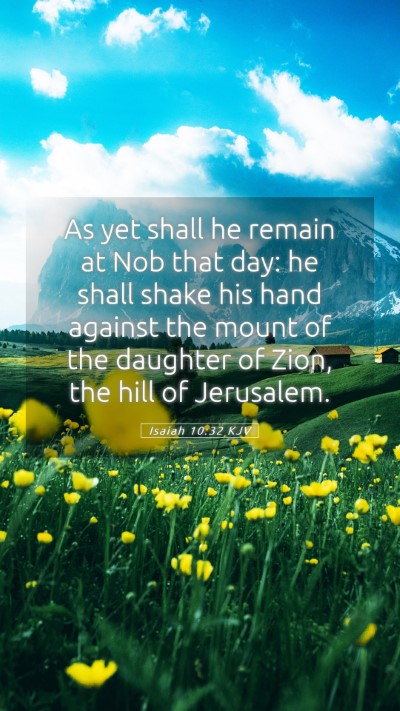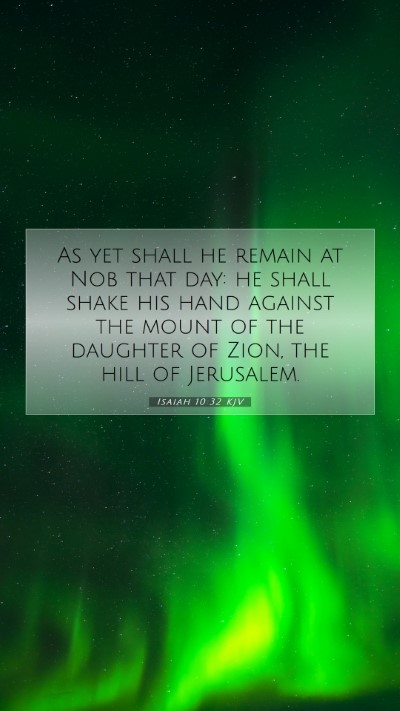Understanding Isaiah 10:32
Isaiah 10:32 states:
"As yet shall he remain at Nob that day: he shall shake his hand against the mount of the daughter of Zion, the hill of Jerusalem."
This verse is rich in meaning and significance, and it requires careful interpretation to grasp its full depth. The understanding of this verse has been explored by prominent public domain commentaries including those of Matthew Henry, Albert Barnes, and Adam Clarke. Below is an analysis combining their insights.
Contextual Analysis
Before diving into specific interpretations, it is essential to explore the context surrounding Isaiah 10:32. The prophet Isaiah speaks during a time of judgment and destruction, particularly focusing on the threats posed by Assyria to Judah. This context sheds light on the urgent tone of the passage and its implications for the people of Zion.
Verse Breakdown
-
“As yet shall he remain at Nob that day:”
Here, the “he” refers to the Assyrian king or army poised to attack. Nob was a nearby location that symbolizes the proximity of danger to Jerusalem, emphasizing the impending threat to the capital.
-
“he shall shake his hand against the mount of the daughter of Zion,”
This imagery of shaking hands suggests a gesture of defiance or aggression. The “mount of the daughter of Zion” signifies Jerusalem itself, the holy city, reinforcing the idea of the Assyrians challenging God's chosen city.
-
“the hill of Jerusalem.”
The repetition of the idea of Jerusalem underlines its spiritual and physical significance. Jerusalem represents not just a city but the heart of Israel's identity and God's covenant with His people.
Commentary Insights
Matthew Henry's Commentary
Matthew Henry emphasizes the audacity of the Assyrian army as they approach Zion. He reflects on how their threats test the faith of the Israelites, reminding readers of the assurance of God's protection. Henry highlights that God's sovereignty remains intact despite the apparent power of Assyria.
Albert Barnes' Commentary
Albert Barnes stresses the significance of Nob as a site where the Assyrians would stop and prepare for their assault on Jerusalem. He points out the despair among the people of Zion, illustrating their plight amid looming destruction, but also reminds us of God’s ultimate control over nations and their fates.
Adam Clarke's Commentary
Adam Clarke provides a historical lens, discussing the geographical and political implications of Nob and Jerusalem. Clarke interprets the shaking of the hand as a signal meant to intimidate, but he also intersperses a note of hope in God's promise of restoration for Zion ultimately, reiterating that the threats will not prevail against His will.
Applications for Today
Isaiah 10:32 resonates with readers today as it speaks about the struggle against overwhelming odds. The imagery of confrontation between the powerful and the faithful invites reflection on our current trials.
Cross References
- Isaiah 36:1-2: This passage details the Assyrian invasion and siege of Jerusalem, giving historical context to Isaiah 10:32.
- Micah 4:10: This verse focuses on the fall of Jerusalem and the hope for its restoration, echoing themes present in Isaiah.
- Psalms 125:1-2: These verses offer comfort and assurance of the Lord's protection over His people, paralleling the theme of divine sovereignty in the face of adversaries.
Conclusion
Isaiah 10:32 warns of impending threats while underscoring God's power. By combining insights from notable commentaries, readers gain a deeper understanding of this verse's meaning and implications. As we study Scripture, verses like these shape our theological insight and personal faith.


